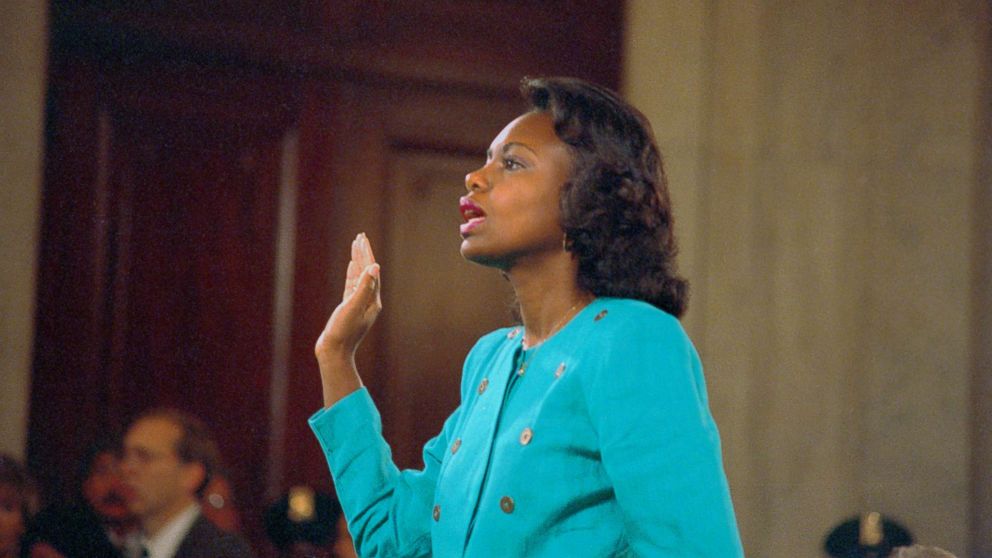Meet Anita Hill, the first woman to upend a Supreme Court confirmation with misconduct allegations
Christine Blasey Ford is not the first woman slated to testify as part of a Supreme Court nomination with allegations of sexual misconduct.
That distinction goes to Anita Hill.
Nearly 30 years before Ford recently accused President Donald Trump’s nominee Brett Kavanaugh of sexually assaulting her when they were in high school, Hill accused then-nominee Clarence Thomas of unwanted advances and lewd comments when she worked for him.
Hill rose to prominence in 1991 with her seminal Capitol Hill testimony about Thomas and is now urging the Senate to learn from her experience and avoid the perceived mistakes of the past.
Who is Anita Hill?
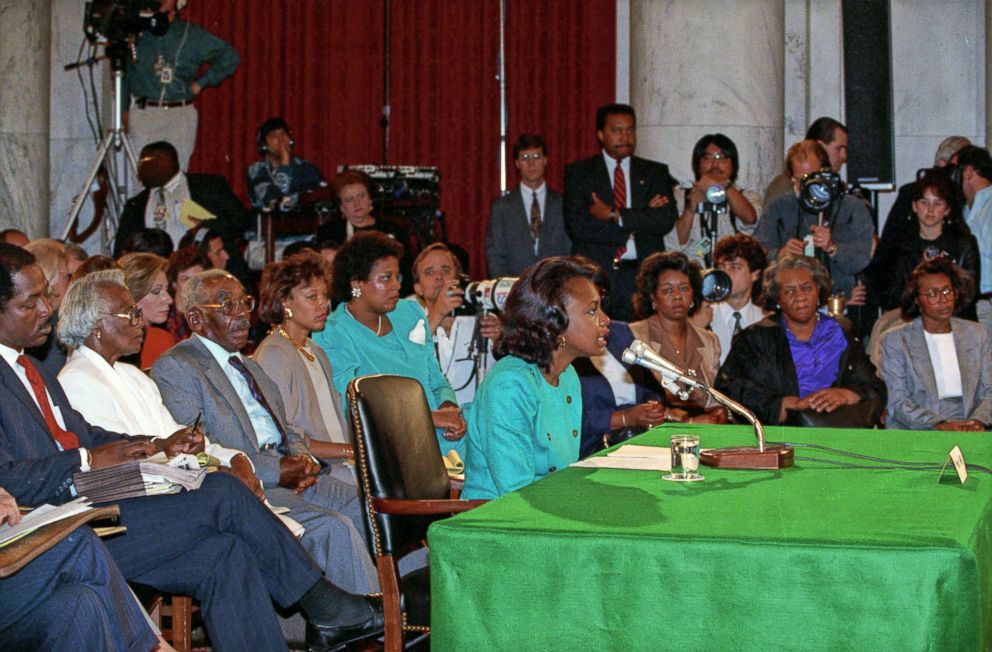
Like Ford, who is a psychology professor, Hill entered the public fray with well-established credentials.
Hill was a law professor at the University of Oklahoma at the time of her testimony, and the official transcript of the Thomas hearings includes a five-page resume detailing her legal work and education.
She began working at the University of Oklahoma in 1986 after teaching at Oral Roberts University, also in Oklahoma. Before entering academia, she had worked with Thomas, now a Supreme Court justice, in two different roles.
Hill told the Senate Judiciary Committee that she had met Thomas through a mutual friend and he later asked her to be his assistant after his appointment as assistant secretary of education for civil rights in the early 1980s, which she accepted.
Their working relationship was "positive" until three months on the job, she told the senators.
"What happened next and telling the world about it are the two most difficult things, experiences of my life,” she testified. “It is only after a great deal of agonizing consideration and a number of sleepless nights that I am able to talk of these unpleasant matters to anyone but my close friends.”
Her accusations against Thomas
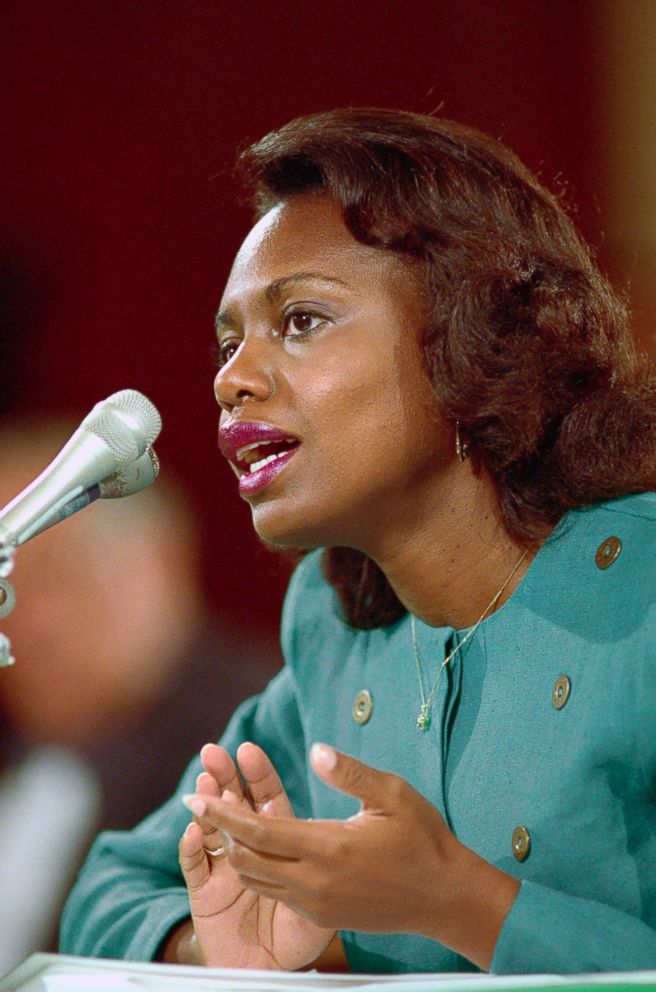
She alleged a number of incidents in which Thomas pressured her to go out with him socially, all of which Hill said she declined.
She also described instances where he allegedly made inappropriate remarks while they worked together, first when he was the assistant secretary of education and when she continued working for him after his move to chairman of the U.S. Equal Employment Opportunity Commission.
"Judge Thomas began to use work situations to discuss sex," Hill said before the committee. "He talked about pornographic materials depicting individuals with large penises or large breasts involved in various sex acts
"On several occasions, Thomas told me graphically of his own sexual prowess," she added. "He spoke about acts that he had seen in pornographic films involving such matters as women having sex with animals and films showing group sex or rape scenes."
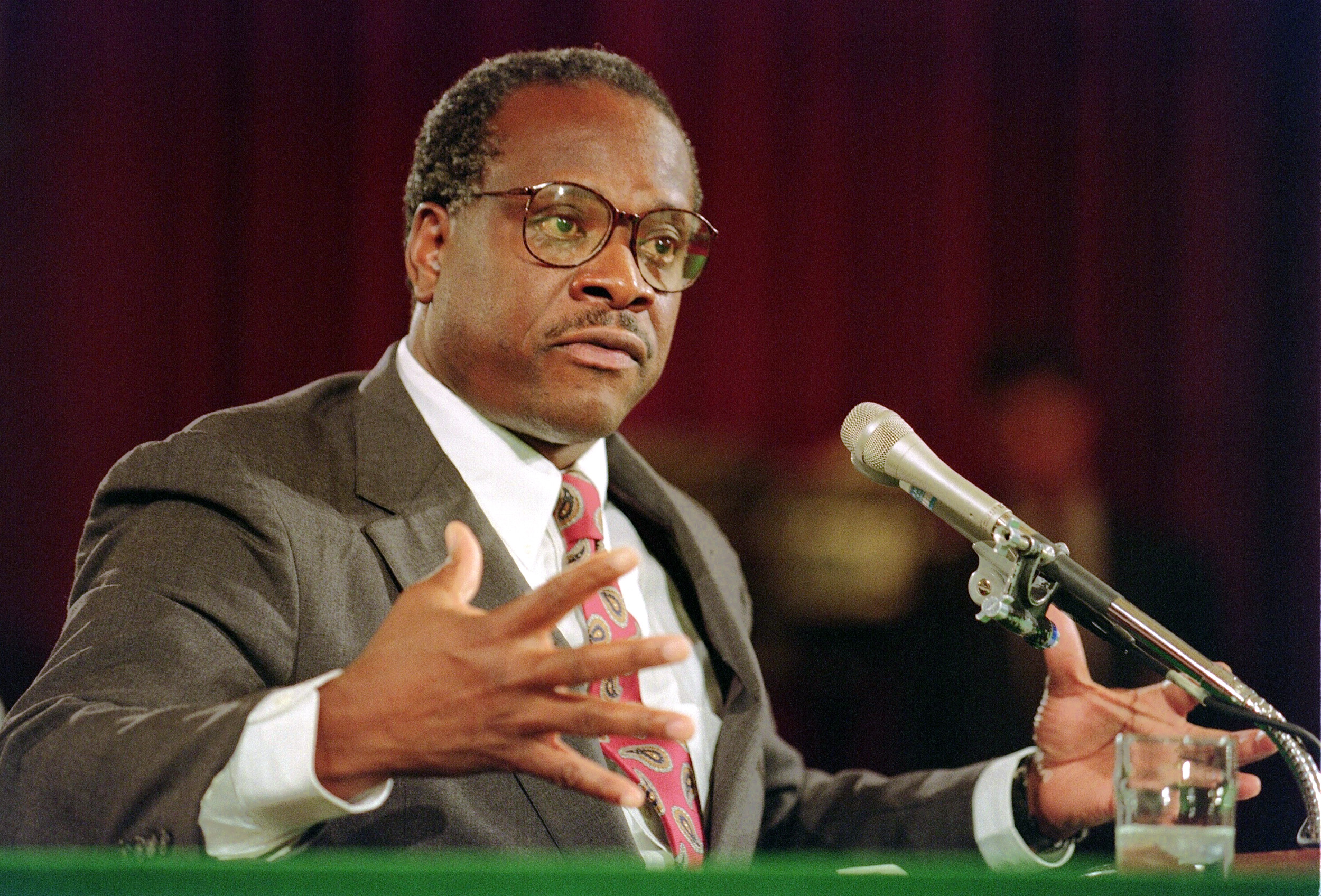
She said her professional relationship with Thomas ended in the summer of 1983 when she accepted the offer to teach at Oral Roberts.
But Thomas asked her to dinner one last time, which she said she first denied but then accepted after he called it a "professional courtesy only," Hill said.
"He said that if I ever told anyone of his behavior that it would ruin his career. This was not an apology, nor was it an explanation. That was his last remark about the possibility of going out, or reference to his behavior," she said, recalling the dinner.
Thomas denied all the allegations, saying during questioning that "from my standpoint as a black American, as far as I'm concerned, it is a high-tech lynching."
"I think that this today is a travesty. I think that it is disgusting. I think that this hearing should never occur in America," he said.
When it was over
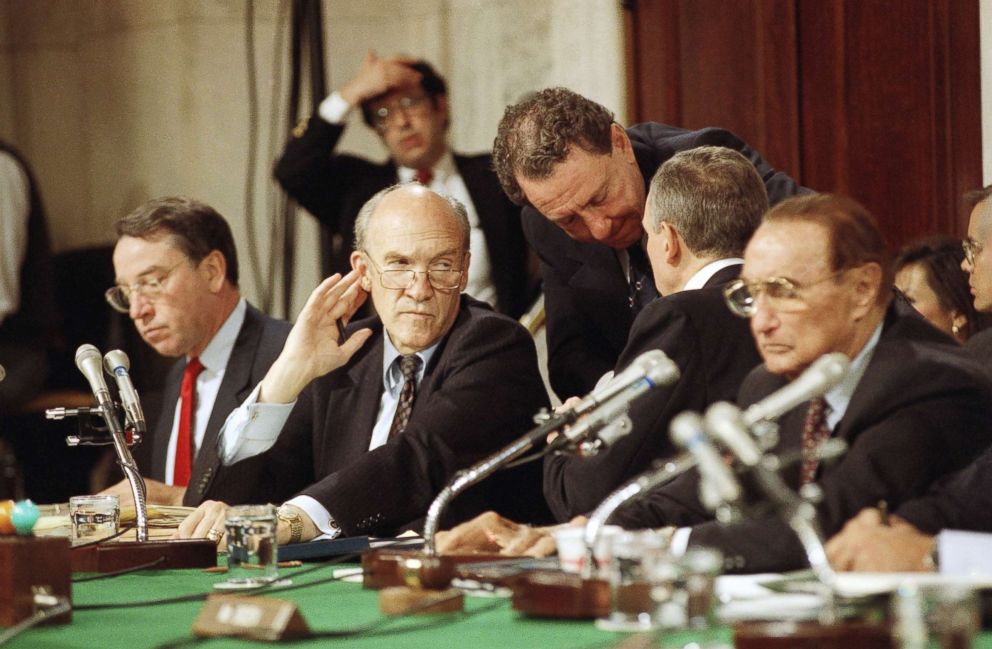
Sexual harassment was not the open topic of discussed in 1991 that it is today, and the majority of poll respondents believed Thomas over Hill before and after her televised testimony in front of an the all-male Senate Judiciary Committee.
FiveThirtyEight cites a CBS News/New York Times poll conducted before her testimony in which 47 percent of respondents thought the accusations were untrue while only 21 percent believed them.
The numbers changed little, as another CBS News/New York Times poll was conducted shortly after her public testimony and 54 percent of respondents thought the accusations were untrue while 27 percent thought they were true.
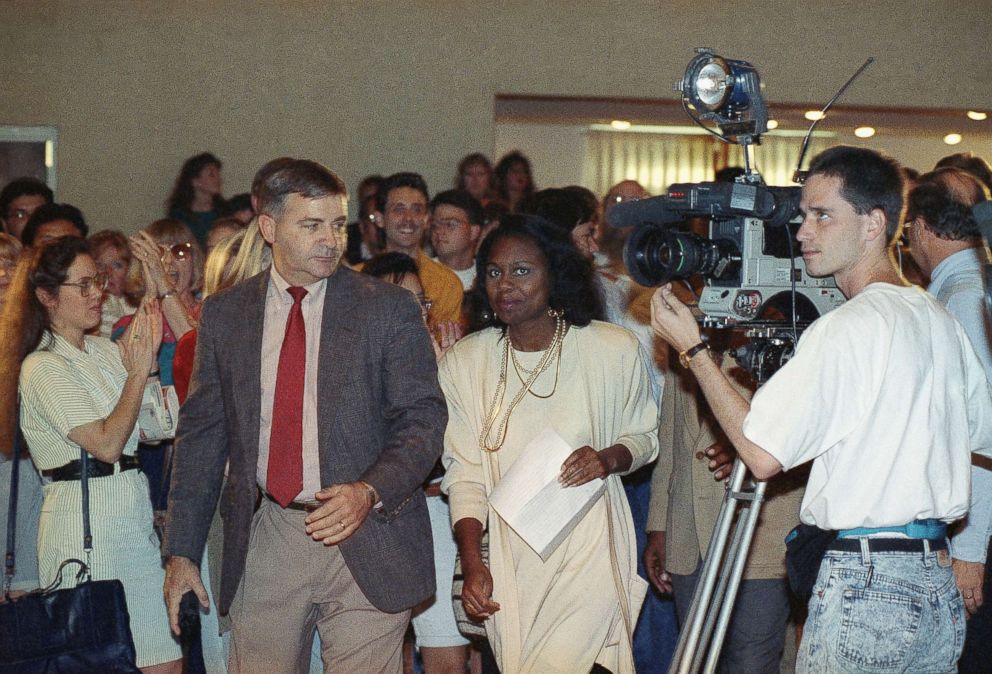
The hearings lasted three days and Thomas ended up winning a narrow vote of 52-to-48.
The 1991 Hill hearings intensified the spotlight on the lack of women in government, and four women won Senate seats the following year, dubbed the "year of the woman.”
There had only been two female senators before that.
Sen. Patty Murray, D-Wash., told The Atlantic in 2013 that the perceived sexism on display in the Hill hearings motivated her to run for office.
Additionally, public support for Hill progressed over time. FiveThirtyEight cites a CNN/USA Today/Gallup poll from October 1992, a year after her testimony, which reported that 43 percent of Americans believed Hill versus the 39 percent of respondents who believed Thomas.
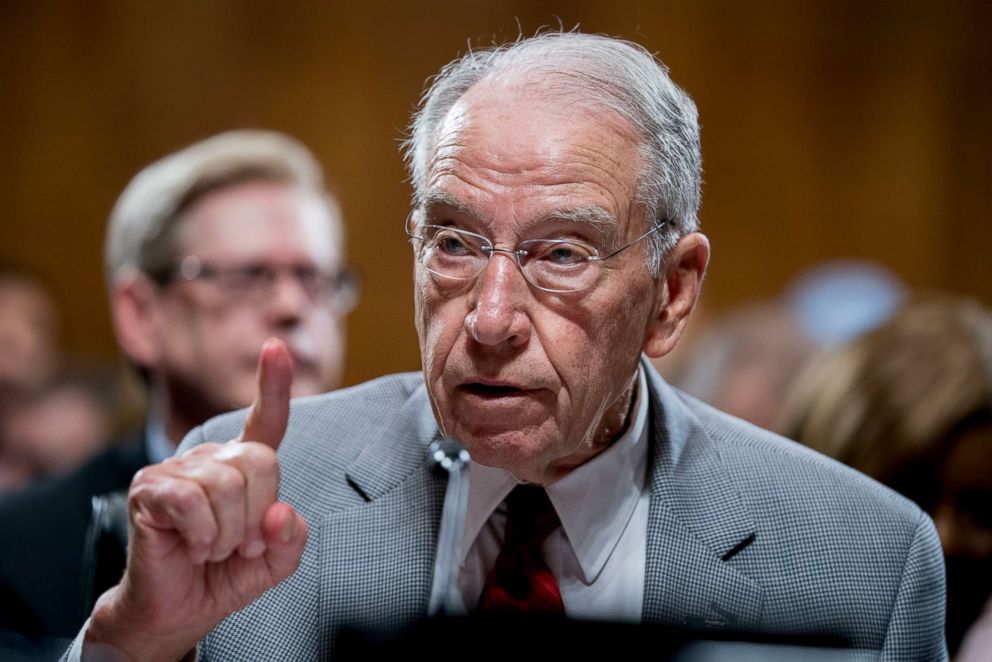
The Hill saga was turned into HBO film "Confirmation" in 2016, starring Kerry Washington as Hill and featuring others playing other familiar faces, like that of former Vice President Joe Biden, who was a senator in 1991 and led the Senate Judiciary Committee hearing, grilling Hill during her testimony.
After leaving the White House and amid the “Me Too” movement, Biden expressed some regrets during a 2017 interview with Teen Vogue.
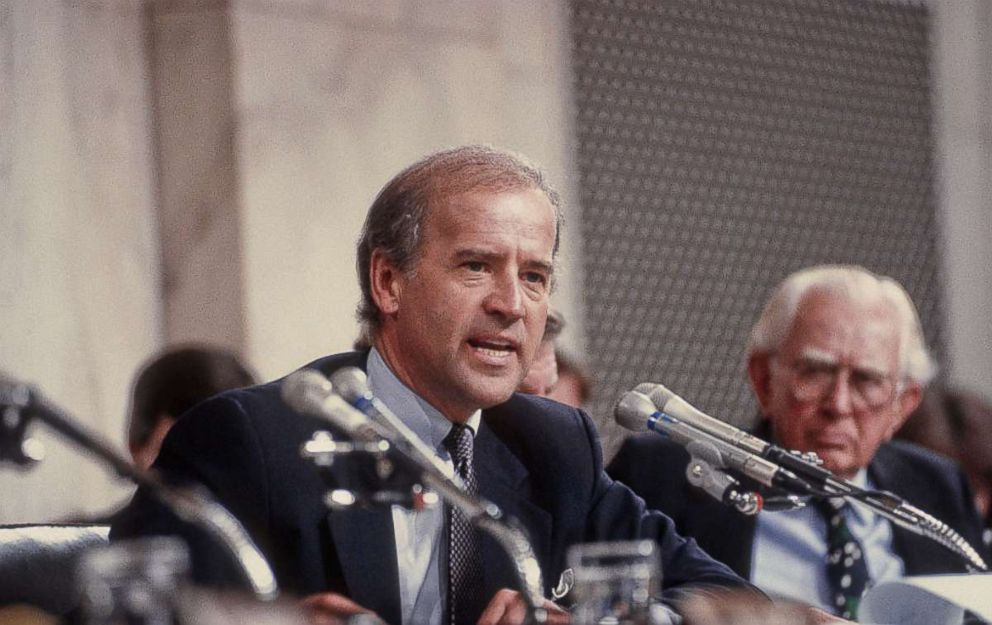
"I believed Anita Hill. I voted against Clarence Thomas," Biden said in the interview.
"My one regret is that I wasn’t able to tone down the attacks on her by some of my Republican friends. I mean, they really went after her. As much as I tried to intervene, I did not have the power to gavel them out of order. I tried to be like a judge and only allow a question that would be relevant to ask," he said.
"I wish I had been able to do more for Anita Hill. I owe her an apology."
